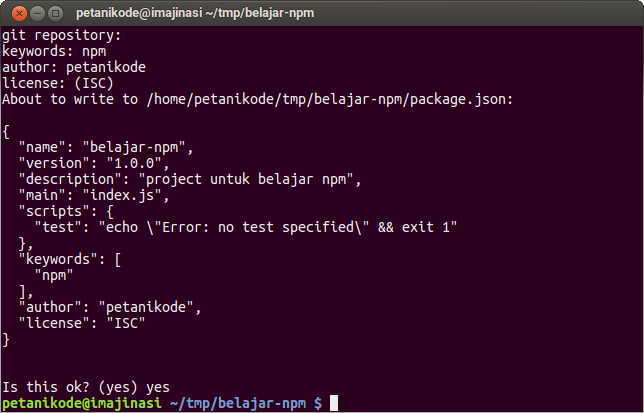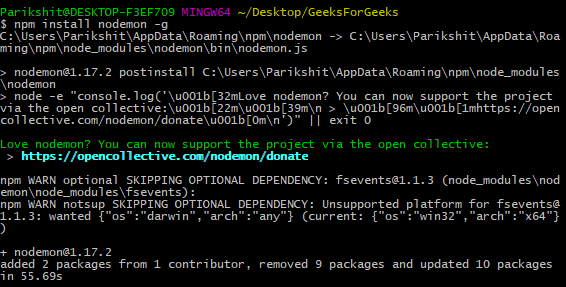


E, -save-exact: Saved dependencies will be configured with anĮxact version rather than using npm's default semver range operator. Package.json, there are two additional, optional flags: When using any of the above options to save dependencies to your no-save: Prevents saving to dependencies. O, -save-optional: Package will appear in your D, -save-dev: Package will appear in your devDependencies. Is the default unless -D or -O are present. P, -save-prod: Package will appear in your dependencies.
Npm save dev save install#
Npm install saves any specified packages into dependencies by default.Īdditionally, you can control where and how they get saved with some The package must contain a package.json file with name and When installing the package (an equivalent of tar x The package contents should reside in a subfolder inside the tarball Want to link a dev directory into your npm root, you can do this more Install a package that is sitting on the filesystem. sits inside the root of your project, its dependencies mayīe hoisted to the top-level node_modules as they would for other Its dependencies will be installed before it's linked. Install the package in the directory as a symlink in the current NOTE: The -production flag has no particular meaning when adding a Variable is set to production, you can use -production=false. To install all modules listed in bothĭependencies and devDependencies when NODE_ENV environment Variable is set to production), npm will not install modules listed With the -production flag (or when the NODE_ENV environment It installs the current package context (ie, the current workingīy default, npm install will install all modules listed as

In global mode (ie, with -g or -global appended to the command), Install the dependencies in the local node_modules folder. Npm install (in a package directory, no arguments): You also want to be able to easily install it elsewhere after packing it up Of using npm if you just want to write a node program (a), and perhaps if


 0 kommentar(er)
0 kommentar(er)
